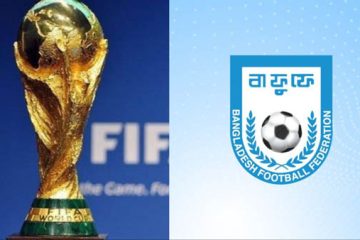Germany’s interior ministry bowed under increasing pressure on Monday as it published details from a report that shows the extent to which the West German government backed the doping of athletes in the 1970s, reports The Guardian.
The move came under swift criticism from the Suddeutsche Zeitung, the German newspaper that first published details of the document, as it said the report had been significantly cut from more than 800 pages.
The newspaper said the new version of six documents, published by the federal institute of sport science (BISp), which is run by the interior ministry, excluded a number of eyewitness accounts as well as the names of influential politicians.
While the report, Doping in Germany from 1950 to Today, had been held back from publication because of data protection concerns, the interior ministry said they had been overcome as the documents under the heading of the project were put online. The ministry said the aim of the research was not to look into individual incidences, expose doping scandals of uncover statutory offences, but to take an in-depth look at the history of doping.
Suddeutsche Zeitung said cuts to the document could ‘explain why the obstacles that stood in the way of publication, have now disappeared so suddenly’.
On Saturday the newspaper reported that doping of athletes with anabolic steroids, testosterone and oestrogen and doping research was conducted over a period of decades and was state funded, with the BISp investing almost £4.5m in medicine research facilities in Freiburg, Cologne and Saarbrucken.
The report – carried out by researchers at Humboldt University in Berlin and the Westfalische Wilhelms University in Munster – detailed doping of football players, including three members of the 1966 West Germany World Cup final team who lost to England at Wembley.
A letter from the FIFA official Mihailo Andrejevic informed the German Athletic Association president, Max Danz, about the ‘fine traces’ of the banned stimulant ephedrine discovered.
Germany’s opposition party, the Social Democrats, have called for a special meeting of the sports committee to look into claims that government funds had been used in systematic doping of athletes.
Andreas Singler, a sports scientist and member of the Evaluation Commission of Freiburg Sport Medicine, whose research was cited as part of the report, told the Guardian it should not be a surprise to people that West German athletes were doped.
‘It has been well-known for a long time,’ he said, although he disputed that the government of the time was responsible.
‘It supported the research about the effects and side effects of the drugs but that doesn’t mean it was necessarily with the aim of doing doping,’ he said.
‘I think the misuse potential was very high and there was a hope from some in the government, not from the ministry itself, but the specialists for sports issues. I think they perhaps expected conditions that made it possible to have a chance to win, not only against the East Germans, but also the US.’
Courtesy of New Age




















